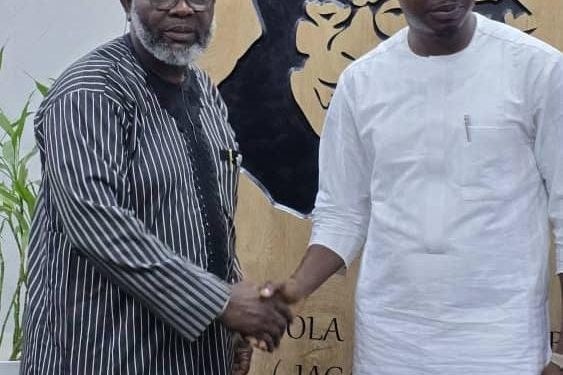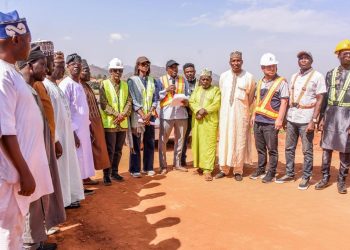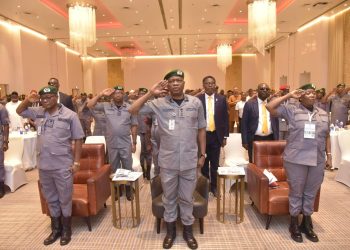By Nkechi Eze
In a significant move aimed at bolstering the implementation of the Fiscal Responsibility Act (FRA) 2007 within Nigeria’s upstream petroleum sector, the Chairman of the Fiscal Responsibility Commission (FRC) on Tuesday paid a working visit to the House of Representatives Committee on Petroleum Resources (Upstream) at the National Assembly Complex in Abuja.
While the visit was initially intended to strengthen inter-agency collaboration, it evolved into a high-level strategic planning session centered on a forthcoming legislative-stakeholder engagement focused on fiscal governance reforms in the upstream petroleum industry.
In a statement made available to journalists, the Commission’s Head of Strategic Communications, Bede Ogueri Anyanwu, disclosed that the meeting provided a critical platform for dialogue between fiscal regulators and lawmakers on ways to deepen transparency, accountability, and prudent financial practices in the management of Nigeria’s petroleum resources.
Speaking during the engagement, the FRC Chairman stressed the imperative of aligning petroleum sector operations with the provisions of the FRA 2007, particularly in the areas of revenue generation and monitoring, efficient allocation of public resources, minimization of fiscal leakages, and strengthening of compliance frameworks.
“The upstream petroleum sector represents one of the most significant revenue sources for the country. Its strategic importance demands that we hold it to the highest standards of fiscal responsibility,” the FRC Chairman stated. “Our visit today is not just ceremonial, it’s a reaffirmation of our commitment to ensuring that the Fiscal Responsibility Act is not just a policy on paper but a working tool for economic transformation.”
He noted that the Commission, in line with its mandate under the FRA, is strategically positioned to ensure that fiscal operations across key sectors are robust, transparent, and responsive to national development goals. “We are ready to offer our technical support and policy expertise to legislative committees such as yours to institutionalize best fiscal practices that can safeguard our economy for future generations,” he added.
The strategic session delved into the structure and goals of the upcoming legislative-stakeholder forum, with particular emphasis on aligning sectoral fiscal operations with national priorities. Participants explored how improved fiscal oversight could enhance petroleum revenues, plug revenue leakages, and build a more sustainable economic framework.
Receiving the FRC delegation on behalf of the Committee, the Deputy Chairman of the House Committee on Petroleum Resources (Upstream), Hon. Sesi Oluwaseun Whingan, expressed appreciation for the visit and commended the Commission for its proactive stance.
“This is a timely and necessary engagement,” Hon. Whingan remarked. “As a Committee charged with oversight of the upstream petroleum sector, we are deeply concerned with ensuring that revenues generated from our natural resources are managed with the highest degree of accountability. Your visit today demonstrates a shared vision for responsible economic stewardship.”
He assured the FRC of the Committee’s full cooperation, pledging to work closely with the Commission on the forthcoming engagement and other reform-driven initiatives. “We are ready to partner with the FRC to ensure that the petroleum sector becomes a model for fiscal discipline and transparency,” he said.
The Committee Clerk, Mrs. Caroline N. Asan, also welcomed the initiative, describing it as consistent with the Committee’s priorities. “This dialogue is not only welcome, it is overdue. We must continuously interrogate how public funds and sector revenues are managed, and this kind of institutional cooperation is the way forward,” she added.
Both institutions agreed on the need for sustained collaboration and pledged to work together in advancing a fiscal culture that fosters macroeconomic stability and national development. The visit, stakeholders say, marks a pivotal milestone in efforts to deepen inter-agency synergy for sound fiscal governance in Nigeria’s most vital revenue-generating sector.















